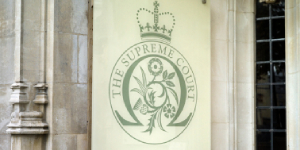
SRA: Increase has not reduced or stabilised
Members of the public and firms reporting concerns to the Solicitors Regulation Authority (SRA) will have to wait up to two months for a response, twice the time it was at the start of the year.
The regulator has blamed a major uptick in reports it receives about solicitors for what it said would only be a “temporary” change.
Complainants are being told that can expect to wait 50 to 55 working days for a response in non-urgent matters, having been 25 to 30 working days until recently.
The problem was foreshadowed in papers before January’s meeting of the SRA board, which noted a “downward trend” in the assessment and early resolution (AERT) of cases, following a recent significant increase in volumes.
From September to November 2024, “we received over 800 more new reports than forecast, based on the previous year’s receipts for those months. We forecast 2,835 and received 3,643, 29% more than forecast.
“This is impacting on the number of unallocated cases and closure performance. Several measures have been taken to seek to address this challenge, and the AERT team closed 1,069 reports in November 2024, the second highest level since January 2023.”
An SRA spokesman said it was carrying out an analysis to identify any trends behind the rise.
“The increase has not reduced or stabilised, so to manage expectations among those that make reports, we have extended temporarily the time needed to get back to non-urgent queries.
“We have also put in place measures to manage this increase, including additional temporary resource and longer-term improvements to speed up decision making.”
The news follows concerted work the SRA has been doing to reduce the number of live investigations older than two years.
As of July 2023, there were 162 cases that had been open for more than two years (it had been over 200 the year before) and the target was to halve that over the 12 months – in fact, there were 60 open cases by 30 June 2024, a 63% reduction, although later statistics showed that it remained at that level into autumn.
Separately, the SRA’s executive director for strategy and innovation, Aileen Armstrong, revealed last week that the number of investigations into law firms in relation to their conduct of volume litigation has risen from over 50 before Christmas to over 60.












The SRA are directing all resources at AML etc and anything they can fine firms for to raise revenue.